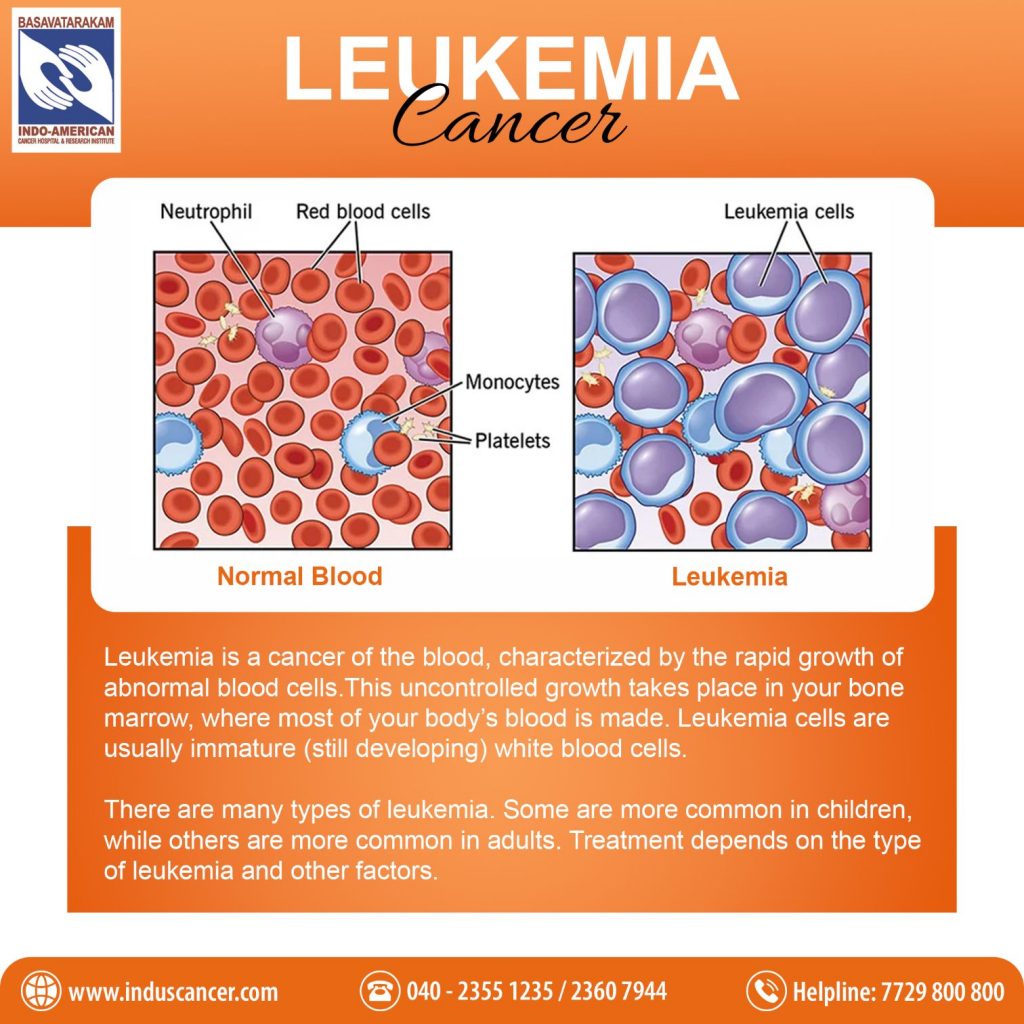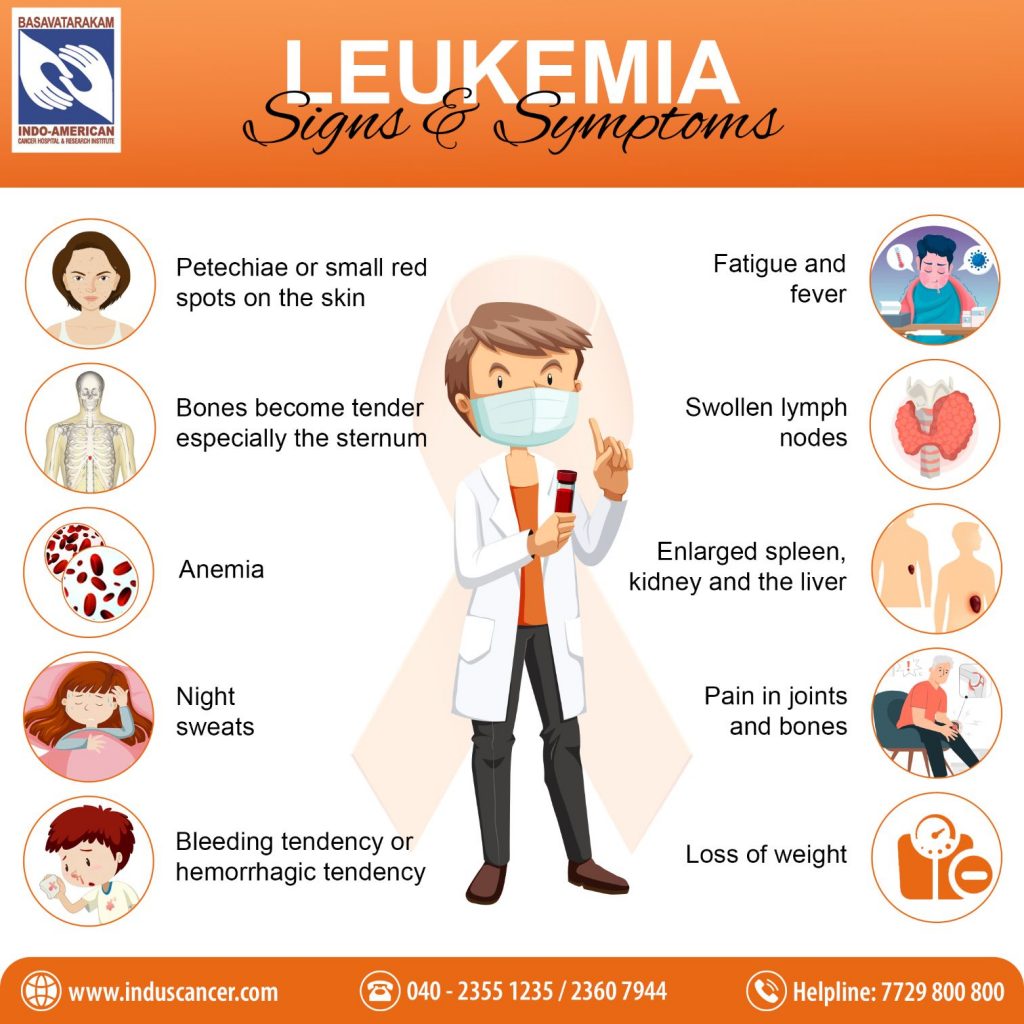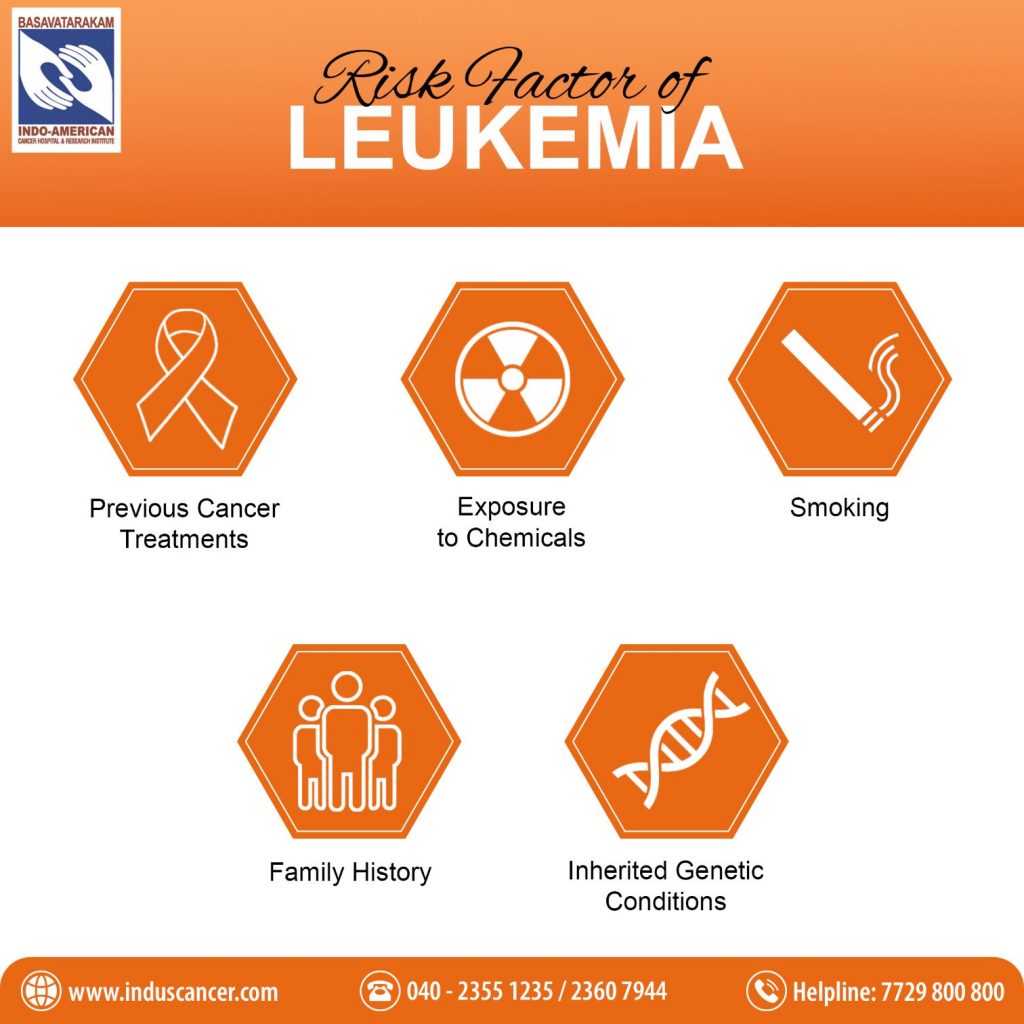Comprehensive Guide to Leukemia: Symptoms, Causes, Treatment, Types, Diagnosis, and Risk Factors of Leukemia
-
Leukemia is a type of cancer that affects the blood and bone marrow. In a healthy body, bone marrow produces different types of blood cells, including red blood cells (carry oxygen), white blood cells (fight infections), and platelets (help with clotting).
-
Leukemia starts when there is an abnormal growth of immature white blood cells in the bone marrow. These abnormal cells, known as leukemia cells, don’t function properly and can’t fight infections like normal white blood cells. As they multiply, they can crowd out healthy cells, leading to problems with normal blood cell production.
-
Because leukemia cells can spread to other parts of the body through the bloodstream, leukemia is often considered a systemic disease. There are different types of leukemia, classified based on the type of white blood cell that’s affected and whether the disease progresses rapidly (acute) or slowly (chronic).
What is Leukemia: Leukemia is a type of cancer that affects the blood and bone marrow, leading to the abnormal production of white blood cells. These cancerous cells crowd out healthy blood cells, impairing the body’s ability to fight infections and causing various health complications. In this comprehensive guide, we will explore the symptoms, causes, treatment options, types, diagnosis process, and risk factors associated with leukemia.
How Leukemia Forms: Leukemia starts when there is a change in the DNA of blood stem cells, causing them to produce too many abnormal white blood cells. These cells don’t work properly and take up space in the bone marrow, making it harder for healthy cells to grow.
Symptoms of Leukemia: The symptoms of leukemia can vary depending on the type and stage of the disease, but common signs include:
-
Fatigue and Weakness: Feeling unusually tired or weak, even with adequate rest.
-
Frequent Infections: Increased susceptibility to infections due to low white blood cell count.
-
Easy Bruising and Bleeding: Unexplained bruises or bleeding, including nosebleeds and gum bleeding.
-
Unexplained Weight Loss: Significant weight loss without an apparent cause.
-
Bone Pain: Pain or tenderness in bones and joints.
-
Swollen Lymph Nodes: Enlarged lymph nodes in the neck, armpits, or groin.
-
Abdominal Discomfort: Enlargement of the liver or spleen can lead to abdominal discomfort.
Causes of Leukemia: The exact cause of leukemia remains largely unknown, but several factors may contribute to its development:
-
Genetic Factors: Some genetic mutations or chromosomal abnormalities can increase the risk of leukemia.
-
Environmental Exposures: Exposure to certain chemicals or radiation may play a role in some leukemia cases.
-
Pre-existing Blood Disorders: Some blood disorders, such as myelodysplastic syndrome (MDS), can progress to leukemia.
Types of Leukemia: Leukemia is classified into four main types based on the type of white blood cells affected and how quickly the disease progresses:
-
Acute Lymphoblastic Leukemia (ALL): A rapidly progressing form that affects immature lymphocytes, most common in children.
-
Chronic Lymphocytic Leukemia (CLL): A slowly progressing form that affects mature lymphocytes, most common in older adults.
-
Acute Myeloid Leukemia (AML): A rapidly progressing form that affects immature myeloid cells, occurring in both children and adults.
-
Chronic Myeloid Leukemia (CML): A slowly progressing form that affects mature myeloid cells, occurring primarily in adults.
Diagnosis of Leukemia: The diagnosis process includes various tests and examinations:
-
Physical Examination: The doctor examines the patient for signs of anemia, enlarged organs, or swollen lymph nodes.
-
Blood Tests: A complete blood count (CBC) helps identify abnormal blood cell counts.
-
Bone Marrow Aspiration and Biopsy: Bone marrow samples are obtained for examination under a microscope to determine the presence of cancerous cells.
Risk Factors for Leukemia: Several factors can increase the risk of developing leukemia:
-
Genetics: A family history of leukemia or certain genetic conditions may predispose individuals to the disease.
-
Radiation Exposure: High levels of radiation, such as exposure to nuclear radiation or certain cancer treatments, can increase the risk.
-
Chemical Exposure: Exposure to certain chemicals, such as benzene, may raise the risk of leukemia.
-
Previous Blood Disorders: Some pre-existing blood disorders, such as MDS, can progress to leukemia.
Treatment Options for Leukemia: The treatment of leukemia varies depending on the type, stage, and the patient’s overall health. Common treatment options include:
-
Chemotherapy: Powerful drugs target and kill cancer cells.
-
Radiation Therapy: High-energy X-rays target cancer cells in specific areas.
-
Stem Cell Transplant: Healthy stem cells are transplanted to replace damaged or cancerous cells.
-
Targeted Therapy: Drugs specifically target certain molecules involved in cancer growth.
-
Immunotherapy: Treatment enhances the body’s immune response against cancer cells.
-
Clinical Trials: Participation in clinical trials to access new treatments and therapies.


